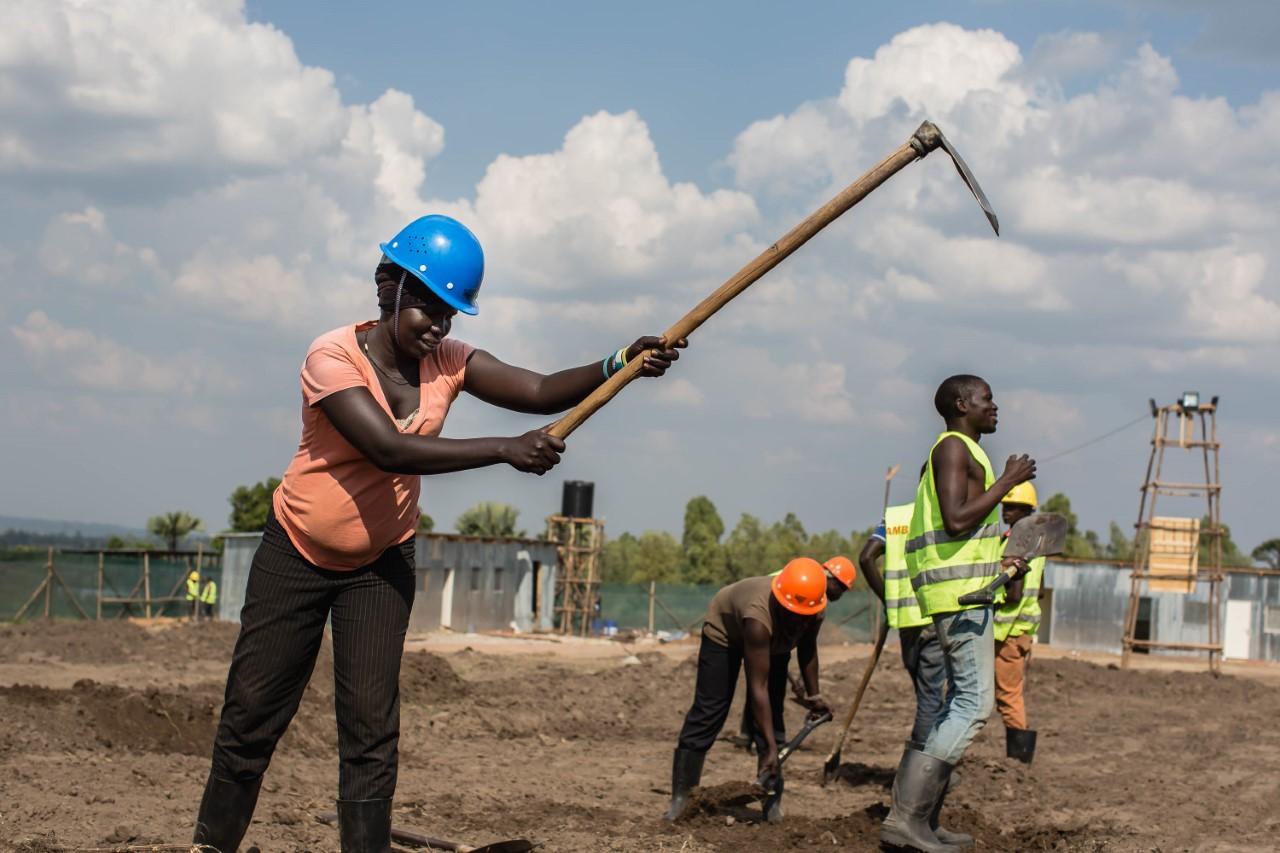Promoting gender equality through climate action in the NTCs- Uganda
For
many years, the lasting effects of climate change have severely affected the
world through short-term disasters like landslides and floods and long-term
impacts like gradual environmental degradation. Areas such as agriculture,
energy, human health, biodiversity, ecosystems, and water resources continue to
feel these effects. Among the most vulnerable and marginalised in many of these
areas, women experience the most profound impacts. They constitute the majority
of the world’s poorest and are more dependent on the natural resources that
climate change threatens the most. Women also face unequal access to resources
and decision-making, especially where structural barriers to gender equality
such as division of gender roles in households/communities and dependence on
natural resources prevail.
At
the same time, they are influential contributors to change and contribute
profoundly to climate action at all levels. They have proven to be leading the way towards more equitable and
sustainable solutions to climate change to build a more
sustainable future.
In
the National Teachers’ Colleges (NTCs), Enabel is has applied the following
gender strategies to respond to the challenges caused by climate change.
Renewable energy
Energy,
particularly renewable energy, is often cited as a critical climate change
mitigation strategy. In Uganda, like many countries, energy is looked at in
terms of electricity, gas and oil. However, the role of women in energy issues
is still unclear. Women are presumed unable to operate sophisticated energy
mediums, excluding them from playing a crucial role in discussions about energy
and contributing to critical climate change mitigation decisions.
In
the National Teachers’ colleges, women play a central role in the day to day
operations of sustainable renewable energy sources such as biogas and the use
of wood saving stoves which contribute significantly to environmental
conservation. Biomass fuel being the most dependable energy source, women often
are left with the burden of operating this energy source for cooking, lighting
and heating. With renewable energy sources, college cooks enjoy efficient
smoke-free cooking by using solar water heaters, wood saving stoves, and biogas
that significantly impact their health, the environment, and the climate.
To
the NTCs, a reduced need for firewood by over 50% (from 8 to 4 truckloads) per
term is ideal for saving money. However, for the cooks, the problems caused by
biofuels like firewood are solved. There is a reduction in the workload and
green gas emissions, resulting in healthy living conditions.
“My
eyes were greatly affected by the smoke emissions from our old kitchen. With
the new wood-saving stoves and biogas cookers, cooking is cleaner and faster,
giving us ample time to perform other tasks”. Nakato Mary- college chef, NTC
Mubende.
Integrated and
sustainable water management.
In
rural Uganda, women usually face the burden of fetching water for their
families. They spend significant amounts of time commuting to and from distant
water sources, putting them at risk of violence. In addition, water from these
sources is often unsafe and can barely meet their daily needs. With Climate
change, significant impacts on freshwater sources continue to affect its
availability for domestic and productive tasks. It also impacts agricultural
production and livestock care and increases the labour required to collect,
store, and distribute water.
In
NTC Kaliro, the case is not any different. The area suffers from prolonged
drought, which significantly impacts access to water. Enabel has taken an
environmental protection approach that promotes easy access to a water supply
by constructing facilities that cater to rainwater harvesting. Additionally, a
solar-driven water extraction and transfer system for quality water are in
place. The water sources will enable easy access to clean and safe water for
students, predominantly female and protect them from the risk of violence. It
will also prevent them from contracting diseases caused by contaminated water,
such as arsenic disease, resulting in fatal complications and stigmatisation in
society due to their appearance.
Climate responsive
infrastructure
Uganda
already faces significant impacts of climate change. Temperatures are rising,
drought and wildfires are starting to occur frequently, and rainfall patterns
are shifting. These climate changes have a social-economic impact that makes
communities vulnerable. Enabel has set up sustainable infrastructure to
facilitate teaching and learning in an energy-efficient manner. The facilities
enhance environmental protection by reducing the carbon footprint through
sustainable energy and waste management in the NTCs.
In
these facilities' planning and design process, Nalubega Josephine, an architect
at Enabel in Uganda, says that the facilities at the colleges are designed to
suit the regional climate. "The
focus is to ensure that learning spaces have adequate ventilation and natural
lighting. Local materials such as bamboo have been incorporated in the design
of most facilities because they are sustainable and allow for classrooms to
accommodate many students at a time," she says.
Apart
from the actions above, Enabel is doing the following to promote gender
equality in climate change for a sustainable tomorrow.
- Students in the NTCs are trained and equipped with green skills as part of their initial training. Such skills include the production of renewable energy sources like briquettes and biogas. These skills are essential in empowering students to create alternative, environmentally friendly energy sources.
- Enable supports the NTCs in digitising teaching and learning processes. With this initiative, NTCs have reduced their need for paper and adopted a hybrid approach to teaching, learning and management practices.
- Students are sensitised to perform actions geared towards environmental conservation in their day-to-day. Such activities include the 3Rs (Reduce, Reuse, Recycle). Additionally, recycling bins are in place to encourage students to practice waste segregation. Hajirah Naigaga, a lecturer at NTC Kaliro, says, “We have done much sensitisation for our students in the NTCs, and we believe that they will carry on the same knowledge to their students.”
Dernières actualité de ce projet
Pas d'actualité

